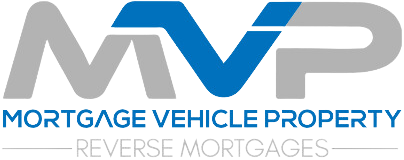Frequently Asked Questions
Frequently Asked Questions (FAQ) about Reverse Mortgages
Discover answers to frequently asked questions about reverse mortgages, covering eligibility criteria, repayment options, financial impacts, and effects on benefits. If you have any additional inquiries, please fill out the form, and we will promptly respond.
A reverse mortgage allows homeowners, typically older adults, to convert part of their home equity into cash without selling their home. Unlike a traditional mortgage where homeowners make monthly payments to the lender, with a reverse mortgage, the lender makes payments to the homeowner, either as a lump sum, monthly payments, or a line of credit. The loan is repaid when the homeowner no longer uses the home as their primary residence.
MVP Reverse Mortgages is a brokerage, not a lender. We work with a variety of lenders to find you the best reverse mortgage solution tailored to your needs. Our role is to facilitate the process and provide expert guidance throughout your journey.
Yes, there are costs involved in setting up a reverse mortgage, including closing costs, lender fees, government charges, and fees for independent legal advice. These costs can often be deducted from the loan amount.
The lender covers the costs of our services, paying us for introducing and managing the loan process on your behalf. Additionally, David is a Commissioner for Declarations, making the process of witnessing documents convenient for you.
Reverse mortgages offer flexible payment options: homeowners can receive funds as a lump sum, periodic payments, or as a line of credit. The choice depends on individual financial needs and preferences.
Repayment of a reverse mortgage typically starts when the homeowner no longer lives in the home as their primary residence, such as when they sell the home, move out permanently, or pass away. At that point, the loan balance, including accrued interest and fees, must be repaid.
A reverse mortgage can reduce the inheritance that homeowners leave for their heirs because the loan balance, including accrued interest and fees, must be repaid from the proceeds of the home sale. However, heirs have the option to pay off the loan and keep the home.
This depends on your circumstances.
Overall, the rule of thumb is – what is the purpose of the loan? If that purpose is not for investment purposes, then there maybe no tax claims applicable.
But it may have an impact on your pensions. This is best checked and answered through the relevant government agency.
Deciding on a reverse mortgage involves considering factors such as financial needs, long-term plans for the home, potential impact on inheritance, and eligibility for government benefits. Seeking advice from financial and legal professionals can help homeowners make informed decisions.
The amount you can borrow depends on your age and the value of your property. The percentage you can borrow increases with age:
- Aged 60 = 15%
- Aged 65 = 20%
- Aged 70 = 25%
- Aged 75 = 30%
- Aged 80 = 35%
- Aged 85 = 40%
- Aged 90 = 45%
(There is a 1% increase per year above age 60.)
The percentage is based on the age of the youngest nominated borrower.
A reverse mortgage may impact your pension or other government benefits. To understand how it might affect you, contact the Department of Human Services (Centrelink) at 132 300 and speak with a Financial Information Service Officer. They can provide detailed information specific to your situation.
A reverse mortgage can be used for any purpose you choose. Many people utilize the loan to fund home repairs or improvements, repay debt, travel to visit family, pay for medical procedures, upgrade to a more reliable car, assist with in-home care, or for a host of other uses to enhance their quality of life and comfort.
